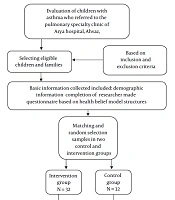This article is retracted by EIC or Authors request.
Background:
Asthma is the most common chronic condition among children. It requires parents to engage in child care. Thus, the quality of asthma control depends on parents’ knowledge and attitude towards asthma and its treatments.
